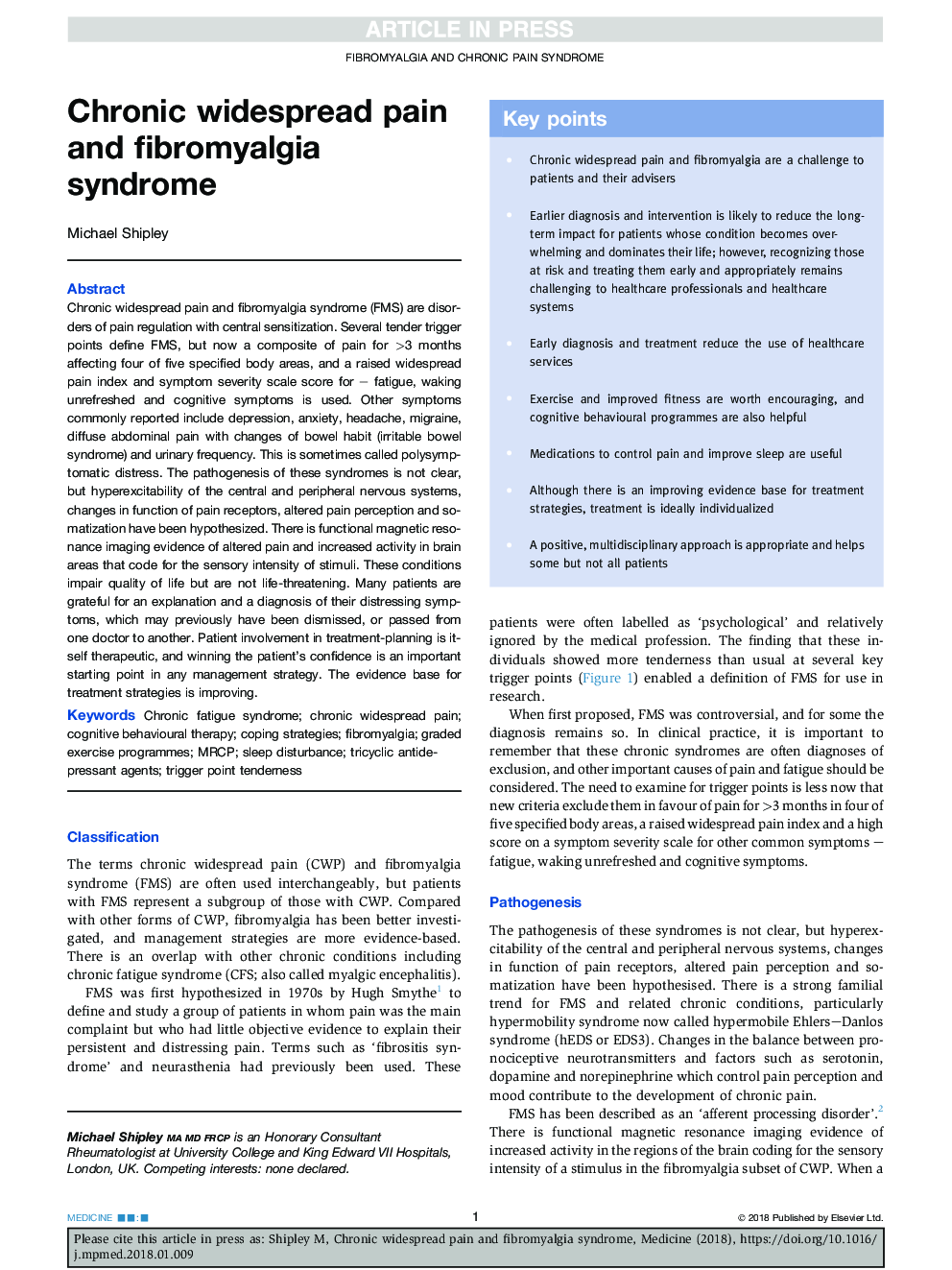| Article ID | Journal | Published Year | Pages | File Type |
|---|---|---|---|---|
| 8764047 | Medicine | 2018 | 4 Pages |
Abstract
Chronic widespread pain and fibromyalgia syndrome (FMS) are disorders of pain regulation with central sensitization. Several tender trigger points define FMS, but now a composite of pain for >3 months affecting four of five specified body areas, and a raised widespread pain index and symptom severity scale score for - fatigue, waking unrefreshed and cognitive symptoms is used. Other symptoms commonly reported include depression, anxiety, headache, migraine, diffuse abdominal pain with changes of bowel habit (irritable bowel syndrome) and urinary frequency. This is sometimes called polysymptomatic distress. The pathogenesis of these syndromes is not clear, but hyperexcitability of the central and peripheral nervous systems, changes in function of pain receptors, altered pain perception and somatization have been hypothesized. There is functional magnetic resonance imaging evidence of altered pain and increased activity in brain areas that code for the sensory intensity of stimuli. These conditions impair quality of life but are not life-threatening. Many patients are grateful for an explanation and a diagnosis of their distressing symptoms, which may previously have been dismissed, or passed from one doctor to another. Patient involvement in treatment-planning is itself therapeutic, and winning the patient's confidence is an important starting point in any management strategy. The evidence base for treatment strategies is improving.
Keywords
Related Topics
Health Sciences
Medicine and Dentistry
Medicine and Dentistry (General)
Authors
Michael Shipley,
